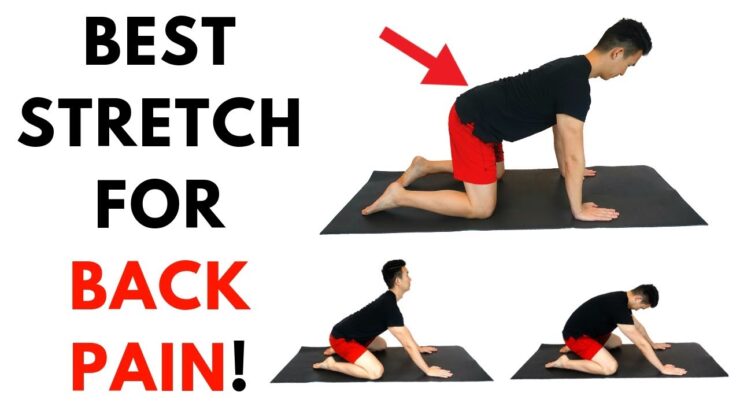
How to cure gum disease without a dentist – Gum disease, a common problem, can be treated without a dentist. From natural remedies to over-the-counter treatments, this guide provides a comprehensive overview of how to cure gum disease at home, including tips for prevention and early detection.
Home Remedies: How To Cure Gum Disease Without A Dentist

Home remedies offer a natural approach to alleviating gum disease symptoms. While they may not replace professional dental care, these remedies can complement traditional treatments and provide additional support.
The effectiveness of home remedies varies depending on the severity of the gum disease and the individual’s response. It’s important to note that some remedies may only provide temporary relief and should not be considered a cure for advanced gum disease.
Herbal Treatments
- Green tea:Contains antioxidants and antibacterial properties that can help reduce inflammation and kill bacteria in the mouth.
- Aloe vera:Has anti-inflammatory and antibacterial effects, and can soothe irritated gums.
- Myrrh:A natural antiseptic and antibacterial agent that can help fight gum disease.
Essential Oils
- Tea tree oil:Possesses antimicrobial and anti-inflammatory properties that can help reduce plaque and gingivitis.
- Eucalyptus oil:Has antibacterial and anti-inflammatory effects, and can help freshen breath.
- Peppermint oil:Contains antimicrobial properties and can help reduce pain and inflammation.
Other Natural Approaches
- Saltwater rinse:Dissolving salt in warm water creates a solution that can help reduce inflammation and kill bacteria.
- Baking soda rinse:Baking soda is an alkaline substance that can help neutralize acids in the mouth and reduce plaque.
- Oil pulling:Swishing oil (such as coconut oil or sesame oil) in the mouth for 10-15 minutes can help remove bacteria and reduce inflammation.
Over-the-Counter Treatments

Over-the-counter (OTC) medications can provide temporary relief from gum disease symptoms. These medications typically contain antibacterial or antiseptic ingredients to help reduce inflammation and kill bacteria.
If you’re struggling with gum disease, you don’t have to suffer alone. There are plenty of ways to cure gum disease without a dentist . From natural remedies to over-the-counter treatments, there are options for everyone. With a little effort, you can get your gums back to health and keep them that way.
Types of OTC Medications
- Antibacterial mouthwashes:These mouthwashes contain ingredients such as chlorhexidine or cetylpyridinium chloride, which help kill bacteria that cause gum disease.
- Antiseptic mouthwashes:These mouthwashes contain ingredients such as hydrogen peroxide or alcohol, which help reduce inflammation and kill bacteria.
- Gels and ointments:These products are applied directly to the gums and contain ingredients such as benzocaine or lidocaine, which help numb the pain and reduce inflammation.
- Toothpastes:Some toothpastes contain ingredients such as triclosan or fluoride, which help reduce plaque and bacteria.
It’s important to note that OTC medications are not a substitute for professional dental care. They can provide temporary relief from symptoms, but they will not cure gum disease. Regular dental checkups and cleanings are essential for maintaining good oral health.
Oral Hygiene Techniques
Maintaining impeccable oral hygiene is paramount in preventing and mitigating gum disease. Effective brushing and flossing techniques, coupled with the judicious use of antimicrobial mouthwashes, form the cornerstone of a comprehensive oral care regimen.
Brushing your teeth twice daily, especially after meals, is crucial for plaque removal. Employ a soft-bristled toothbrush and gentle circular motions, ensuring you reach all tooth surfaces, including the gum line. Flossing at least once a day helps dislodge plaque and food particles from between teeth, where your toothbrush cannot reach.
Antimicrobial Mouthwashes
Antimicrobial mouthwashes, such as those containing chlorhexidine or cetylpyridinium chloride, can effectively reduce the number of bacteria in your mouth. They are particularly beneficial for individuals with gum disease or those at high risk of developing it.
Gum disease can be a pain in the neck, but there are ways to treat it without having to go to the dentist. You can try rinsing your mouth with salt water or using a mouthwash that contains fluoride. If your gum disease is more severe, you may need to take antibiotics.
For more information on how to cure gum disease without a dentist, check out this article .
Lifestyle Modifications

Gum disease is a serious condition that can lead to tooth loss and other health problems. While there are many things you can do to prevent and treat gum disease, making some lifestyle modifications can also be beneficial.
Gum disease is a common problem that can lead to serious health issues if left untreated. The good news is that there are a number of things you can do to cure gum disease without a dentist. Here are a few tips to get you started.
First, make sure to brush and floss your teeth regularly. This will help to remove plaque and bacteria from your teeth and gums. You should also eat a healthy diet that includes plenty of fruits, vegetables, and whole grains. These foods will help to strengthen your immune system and fight off infection.
Finally, avoid smoking and drinking alcohol. These habits can damage your gums and make it more difficult to cure gum disease.
One of the most important things you can do for your gum health is to eat a healthy diet. A diet that is rich in fruits, vegetables, and whole grains can help to keep your gums healthy and strong. Some specific foods that are good for your gums include:
- Citrus fruits: Citrus fruits are a good source of vitamin C, which is essential for healthy gums.
- Leafy green vegetables: Leafy green vegetables are a good source of fiber, which can help to remove plaque and bacteria from your teeth.
- Whole grains: Whole grains are a good source of fiber and other nutrients that are essential for good health.
There are also some foods that you should avoid if you want to keep your gums healthy. These foods include:
- Sugary foods: Sugary foods can feed the bacteria that cause gum disease.
- Sticky foods: Sticky foods can get stuck in your teeth and provide a breeding ground for bacteria.
- Acidic foods: Acidic foods can erode your teeth and make them more susceptible to gum disease.
In addition to eating a healthy diet, there are other lifestyle modifications you can make to improve your gum health. These include:
- Quitting smoking: Smoking damages the gums and makes them more susceptible to infection.
- Managing stress: Stress can weaken your immune system and make you more susceptible to gum disease.
- Getting enough sleep: Sleep is essential for overall health, including gum health.
By making some simple lifestyle modifications, you can help to keep your gums healthy and strong.
Prevention and Early Detection

Gum disease is largely preventable with good oral hygiene practices and regular dental checkups. Early detection is also crucial for effective treatment and minimizing the risk of complications.
Maintaining good gum health requires a combination of proper oral hygiene techniques, lifestyle modifications, and professional dental care. By following these measures, you can significantly reduce your risk of developing gum disease.
Regular Dental Checkups and Cleanings
Regular dental checkups and professional cleanings are essential for maintaining good gum health. During these visits, your dentist will examine your teeth and gums for signs of gum disease, such as redness, swelling, bleeding, or pockets of pus. They will also perform a thorough cleaning to remove plaque and tartar buildup, which can contribute to gum disease.
The frequency of your dental checkups and cleanings will depend on your individual risk factors for gum disease. If you have a history of gum disease or are at high risk for developing it, your dentist may recommend more frequent visits.
If you’re struggling with gum disease, don’t despair! There are plenty of things you can do to cure it without having to visit the dentist. Click here to learn more about how to cure gum disease without a dentist. With a little effort, you can get your gums back to health in no time.
Signs and Symptoms of Early Gum Disease, How to cure gum disease without a dentist
Recognizing the early signs and symptoms of gum disease is important for seeking prompt treatment and preventing its progression. Here are some common signs to watch out for:
- Red, swollen, or bleeding gums
- Gums that are receding from the teeth
- Pus between the teeth and gums
- Loose teeth
- Pain or discomfort when chewing
If you experience any of these symptoms, it’s important to schedule an appointment with your dentist as soon as possible. Early diagnosis and treatment can help prevent gum disease from progressing and causing serious damage to your teeth and gums.
Concluding Remarks
Gum disease is preventable and treatable. By following the tips Artikeld in this guide, you can maintain healthy gums and a bright smile without relying solely on dental visits.
Commonly Asked Questions
Can I cure gum disease without going to the dentist?
Yes, gum disease can be treated at home in its early stages. However, if the condition is severe, professional dental care is necessary.
What are some effective natural remedies for gum disease?
Saltwater rinses, turmeric, and tea tree oil are some natural remedies that have shown promise in reducing gum inflammation and promoting healing.
What over-the-counter treatments can I use for gum disease?
Over-the-counter mouthwashes containing chlorhexidine or cetylpyridinium chloride can help control plaque and bacteria.





